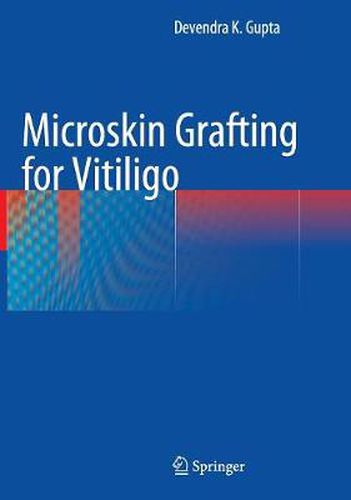Readings Newsletter
Become a Readings Member to make your shopping experience even easier.
Sign in or sign up for free!
You’re not far away from qualifying for FREE standard shipping within Australia
You’ve qualified for FREE standard shipping within Australia
The cart is loading…






This title is printed to order. This book may have been self-published. If so, we cannot guarantee the quality of the content. In the main most books will have gone through the editing process however some may not. We therefore suggest that you be aware of this before ordering this book. If in doubt check either the author or publisher’s details as we are unable to accept any returns unless they are faulty. Please contact us if you have any questions.
This book has been written to assist not only postgraduate students, but also int- ested dermatologists, general practitioners, and surgeons. During the last two decades, various surgical therapies have been used in the tre- ment of stable refractory vitiligo, but none of them became very popular because of their intrinsic drawbacks, and thus could not be adopted as a standard procedure. There has always been a need for a technique that gives best results without complications. The commonly used surgical procedures for the treatment of vitiligo have been narrated in short and their characteristic drawbacks have been pointed out. The c- lular graft technique is costly, requires a good laboratory and infrastructure, and except for being able to cover a wider vitiliginous area, the ultimate results are no better than tissue grafting technique. I used the small skin particles prepared from ultra thin or thin split thickness skin graft, the so called microskin graft, in the tre- ment of vitiligo effectively with good expansion ratio, i.e., small donor skin to treat big vitiliginous area. This procedure covers the bene? t of cellular and tissue graft, but without their inherent drawbacks. The microskin graft technique has been illustrated with minimum necessary text to explain the steps. This technique is very simple to learn and execute. It is extremely 2 cost effective and can treat very large area up to 1,500 cm in an operative session.
$9.00 standard shipping within Australia
FREE standard shipping within Australia for orders over $100.00
Express & International shipping calculated at checkout
This title is printed to order. This book may have been self-published. If so, we cannot guarantee the quality of the content. In the main most books will have gone through the editing process however some may not. We therefore suggest that you be aware of this before ordering this book. If in doubt check either the author or publisher’s details as we are unable to accept any returns unless they are faulty. Please contact us if you have any questions.
This book has been written to assist not only postgraduate students, but also int- ested dermatologists, general practitioners, and surgeons. During the last two decades, various surgical therapies have been used in the tre- ment of stable refractory vitiligo, but none of them became very popular because of their intrinsic drawbacks, and thus could not be adopted as a standard procedure. There has always been a need for a technique that gives best results without complications. The commonly used surgical procedures for the treatment of vitiligo have been narrated in short and their characteristic drawbacks have been pointed out. The c- lular graft technique is costly, requires a good laboratory and infrastructure, and except for being able to cover a wider vitiliginous area, the ultimate results are no better than tissue grafting technique. I used the small skin particles prepared from ultra thin or thin split thickness skin graft, the so called microskin graft, in the tre- ment of vitiligo effectively with good expansion ratio, i.e., small donor skin to treat big vitiliginous area. This procedure covers the bene? t of cellular and tissue graft, but without their inherent drawbacks. The microskin graft technique has been illustrated with minimum necessary text to explain the steps. This technique is very simple to learn and execute. It is extremely 2 cost effective and can treat very large area up to 1,500 cm in an operative session.